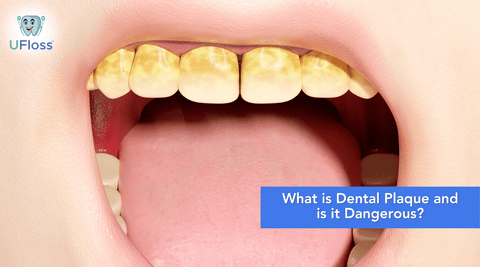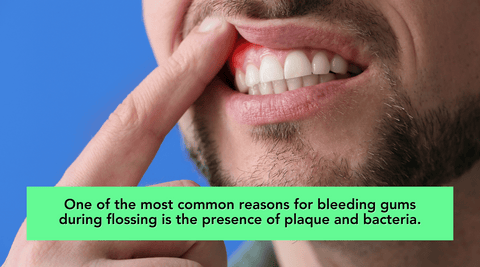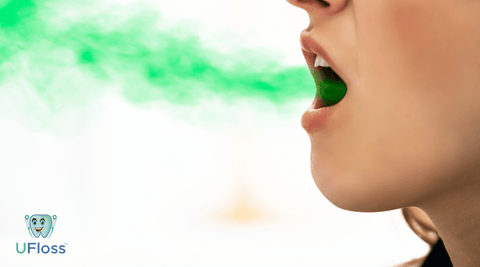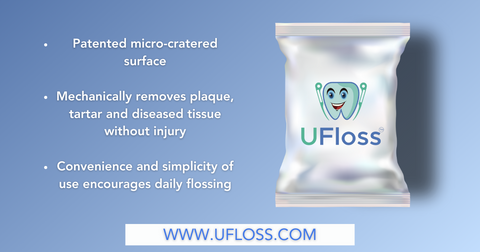What are the Worst Foods for your Teeth?
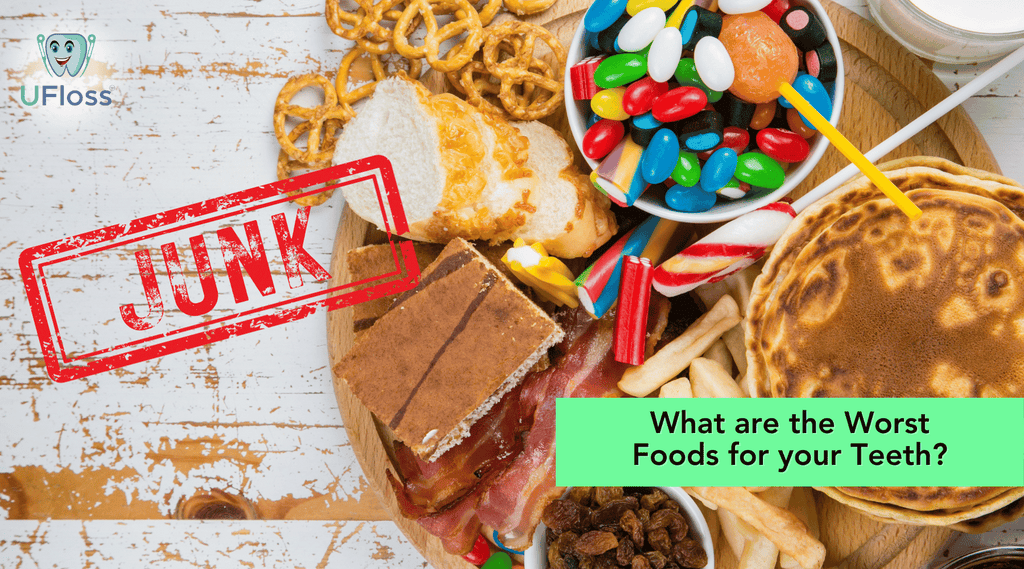
Protecting Your Smile: The Impact of the Worst Foods on Dental Health and How to Preserve Your Teeth
Taking care of your teeth goes beyond brushing and flossing – it extends to what you eat and drink. Your diet plays a pivotal role in maintaining oral health, and understanding the impact of certain foods is crucial for preventing issues like tooth decay, gum disease and more. In this article, we'll explore the worst foods for your teeth and gums, shedding light on their consequences and providing practical tips for maintaining a healthy smile.
Sugary Treats and Beverages
Facts about the Mouth
Here's a fun fact: Your mouth is a complex ecosystem where various factors contribute to its well-being. One critical aspect is dental plaque, a thin film of bacteria and other materials that covers all tooth surfaces. When sugars from treats interact with plaque, acids form, attacking tooth enamel and leading to cavities. The consequences of too much sugar extend beyond a sweet tooth; they affect the delicate balance within your mouth.
The Dangers of Dental Plaque
Dental plaque is a breeding ground for bacteria, and its buildup can cause serious problems. It contributes to gum disease and tooth decay, which, if left untreated, may lead to complications such as pain, chewing difficulties, and tooth abscesses. Understanding the dangers of dental plaque is essential for maintaining healthy gums and teeth.
Sour Candies: The Double Whammy
Sour candies not only pack a sugary punch but also contain different acids that are harsh on your teeth. Their chewy nature makes them adhere to your teeth longer, increasing the likelihood of decay. If you have a sweet craving, opt for a square of chocolate instead – a treat you can chew quickly and wash away easily.Starchy Snacks and Sticky Foods
Link Between Oral Health and Overall Well-being
Proper nutrition doesn't just impact your teeth; it's linked to your overall well-being. The starches in certain snacks, when broken down into sugar, contribute to plaque formation and bacterial growth. Recognizing the connection between oral health and overall well-being reinforces the importance of mindful food choices.
Bread: Think Twice in the Aisle
Bread, a dietary staple for many, may seem harmless, but its starches can turn into sugar in your mouth, creating a gummy paste that sticks to your teeth. Opt for less-refined varieties like whole wheat, which contain fewer added sugars and don't break down as easily.
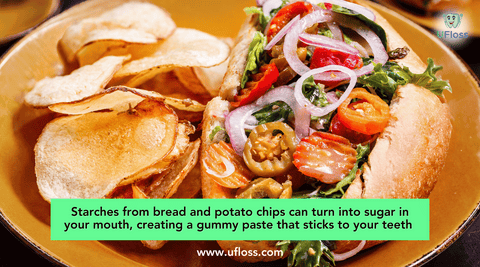
Potato Chips: The Crunch with a Consequence
The satisfying crunch of potato chips comes with a downside. The starch in chips turns into sugar, feeding bacteria in plaque and leading to acid production. After indulging in this snack, flossing is highly recommended (even if that means flossing twice or more a day!) to remove trapped particles and mitigate potential damage.Acidic Foods and Beverages
Bleeding Gums
Acidity in certain foods and drinks can contribute to bleeding gums, an early sign of gum disease. Understanding the correlation between acidic consumption and gum health is crucial for preventing complications.
Carbonated Drinks: More Than Just Sugar
Carbonated sodas, even diet variants, contribute to plaque acidity, attacking tooth enamel. Continuous sipping essentially coats your teeth in acid, drying out your mouth and reducing saliva, which plays a vital role in oral health. Additionally, dark-colored sodas can stain your teeth. Remember not to brush immediately after consuming soda to avoid hastening decay.
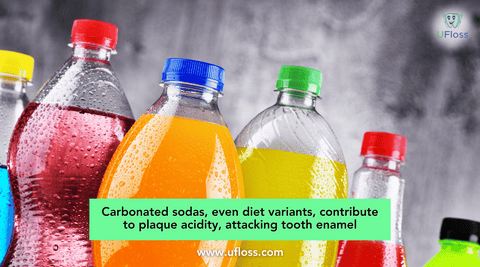
Citrus Fruits: The Double-Edged Sword
While citrus fruits are rich in vitamin C, their acidic content can erode enamel, making teeth vulnerable to decay. Moderation and strategic consumption, such as during meals, along with rinsing with water afterward, can help mitigate the impact on your teeth.
Hard Substances and Dried Fruits
What Happens If You Don't Floss?
Neglecting flossing allows plaque to harden into tartar, which can contribute to gingivitis - a condition that inflames and damages the gums. Understanding what happens if you don't floss emphasizes the importance of incorporating this simple yet effective practice into your oral hygiene routine.
Ice: More Than Just Frozen Water
Chewing on ice may seem harmless, but it can damage enamel and lead to dental emergencies. Avoid the temptation and enjoy water in its liquid form to protect your teeth and gums from potential harm.Dried Fruits: A Sticky Snacking Culprit
Dried fruits, often perceived as a healthy snack, are sticky and can easily cling to teeth, leaving behind sugar. While not necessary to eliminate, consuming them in moderation, along with thorough oral care and water rinsing, is advisable.Alcohol and its Impact on Oral Hygiene
How to Eliminate Halitosis
Alcohol and certain medications can contribute to dry mouth, a condition that reduces saliva and increases the risk of halitosis (bad breath). Understanding how to eliminate halitosis involves staying hydrated with water and considering fluoride rinses or gels, especially if medications are the cause.
Alcohol: Beyond Oral Health
Drinking alcohol dries out the mouth, reducing saliva that is crucial for maintaining healthy teeth. To combat this, staying hydrated with water and using fluoride rinses or oral hydration solutions are recommended.
Proper nutrition is the cornerstone of good oral health. Being mindful of what you consume can significantly impact the well-being of your teeth and gums. The 8 worst foods discussed here, when consumed in excess, can contribute to a range of dental issues. However, moderation, strategic consumption and maintaining a robust oral hygiene routine can go a long way in preserving your smile and overall health. Remember, your commitment to your dental health today ensures a brighter and healthier future!
Take charge of your oral health today! Explore UFloss's range of innovative dental floss picks at the UFloss Store — your solution to maintaining a vibrant smile and combating the dental challenges discussed in this article.


